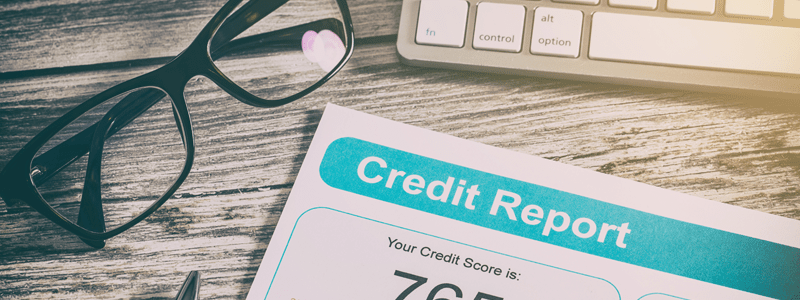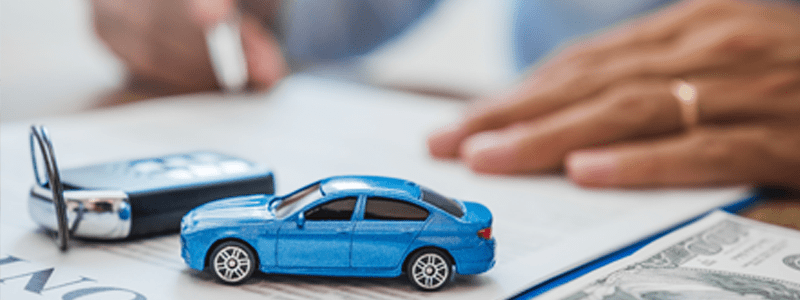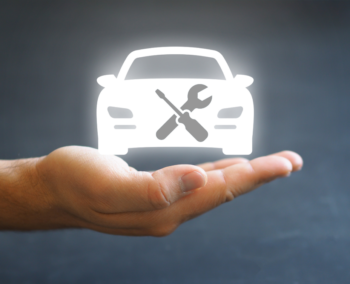
While it’s certainly harder to get car finance with a default, it’s not impossible. By understanding how a default affects your ability to get credit, you may be able to limit the impact and take action to make getting car finance a little easier.
What’s a default?
When you set up an account with a company, you typically arrange to make regular – usually monthly – payments. These accounts can range from credit cards and loans to bank accounts or utility accounts.
A default happens when the lender decides to close your account because you’ve missed several payments on the account. It isn’t due to the amount you owe, but more the regularity of the missed payments.
Where an odd late or missed payment may not have much of an impact, if you start to miss them regularly over the course of three to six months, the company may decide to cancel your agreement and close the account.
Once your account has defaulted, the company will start to ask you for the full amount that is owed. Should you not pay this or come to a satisfactory agreement, they may pass your debt to a collection agency or take it further to court.
How does a default affect my credit score?
When a company decides to cancel your agreement and close the account, the credit reference agencies are informed to update your credit report with a default notice.
Unfortunately, even if you repay the debt swiftly afterwards, the default notice will remain on your report. If you have settled the debt, though, it will show as satisfied.

The negative effect on your credit score can be quite significant, and it will make lenders less likely to lend to you or give you access to higher interest products only.
How does a default affect my ability to get a car loan?
Lenders won’t automatically reject an application for car finance from a borrower with a default on their credit report. However, in their eyes, you pose more of a risk of defaulting, so you may struggle more than someone with a good credit score.
The number of defaults you have on your report is important. The higher the number of defaults the lender can see, the less inclined they’ll be to approve the loan. If you are approved for car finance, it may be for a higher interest deal or one that requires a large deposit. Or both.
Rates from 12.9% APR. Representative APR 18.9% We are a credit broker, not a lender.
*a hard search will be performed if you decide to proceed
How long does a default stay on my credit report?
A defaulted account will stay on your credit for six years from the day it defaulted. Regardless of whether you’ve paid back the full amount or not, the account will still drop off your report after those six years.
The good news is that your credit score will continually start to improve (if everything else is in order) the older the default gets.
The bad news is, if the company decide to take you to court to recover the money you owe them, it could lead to a County Court Judgement (CCJ). In that case, not only will it impact your credit score further, you’ll be looking at another six years for it to recover.
Can I remove a default from my credit score?
Only a lender or a credit reference agency with the lender’s permission can remove a default from your credit record.
If you believe a default on your report has been made in error, you can contact the credit reference agency and ask for a dispute to be raised. They’ll then contact the lender and ask them to check. While this is happening, they’ll add a notice of correction to your report so other lenders looking are aware that it may have been made in error.
If the default has been noted inaccurately, it’ll be removed, and your credit score will recover. Otherwise, you’ll have to wait six years for the default to be removed.
Can I get a car loan with unpaid defaults?
Unfortunately, paying your defaulted account in full won’t make a great deal of difference when it comes to your credit score. Your credit score will improve with time, though, making it easier to get a car loan.


However, lenders will look less favourably at unpaid defaults, so you are more likely to be approved for a car loan by repaying the debt. The sooner you can settle the debt, the better, but even making token agreed smaller payments will make the situation look more positive to lenders.
Remember, a credit score is only one factor that lenders look at when making their assessment. So, if you continue to make payments on time and settle old debts, it often makes a difference regardless of whether it impacts your score.
How can I deal with a default?
You can do several things to reduce the impact of a default on your credit record and look more favourable to a lender.
Firstly, try to pay off the debt as soon as possible. As soon as that’s done, it will be marked as satisfied on your report.
If the default was through financial hardship, such as following redundancy or illness, you could try to ask the credit reference agency to place an explanatory note on the default to help lenders understand your circumstances.
As the default ages, your score will start to improve, and it will appear less important to lenders. In the meantime, you can work on improving your score by making regular payments on time, paying down your balances and registering on the electoral roll.
How can I avoid a default?
Before your account is officially closed and marked as defaulted, a notice is sent by the lender showing how much is needed to get the payments updated and the account back on track.
Where possible, to avoid a default, you’ll need to pay the amount. If you can’t pay the amount, speak to your lender immediately. They may be able to put a solution in place to avoid a default.
What happens if I default on car finance?
If you’ve bought a car through a car finance agreement, you won’t own it until the final payment has been made.
Until that time, it remains the property of the finance company. So, if you default on car finance, not only will it impact your credit rating and your future chances of borrowing, but they can also demand you pay the full amount and return the car.
If you can’t pay the full amount, the company can then start proceedings to have the car repossessed.
Read: What is a voluntary termination and can I end a car finance agreement early?
How does Hippo Motor Finance deal with defaults?
Having poor credit through defaults can impact lenders’ likelihood of providing you with a car finance loan.


At Hippo, we have access to lenders who specialise in helping borrowers with bad credit. We also only use a soft credit check in the first instance to find out whether you’ll be accepted, so there’s no impact on your credit score.
Find out today if you’ll be accepted for car finance with our free soft credit search.
Rates from 12.9% APR. Representative APR 18.9% We are a credit broker, not a lender.
*a hard search will be performed if you decide to proceed

















